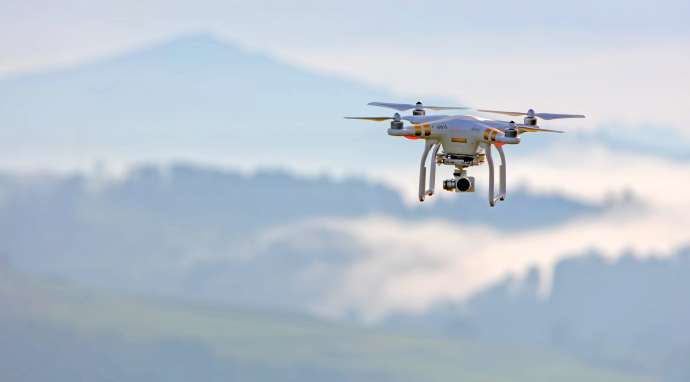STA, 23 July 2020 - Slovenia and Austria have agreed to try out joint surveillance of the shared border using technology such as cameras and drones, as Interior Minister Aleš Hojs held talks with his Austrian counterpart Karl Nehammer at a conference on migrations along the Balkan route.
The trial will "examine the possibility of effective cooperation in joint border surveillance and the transfer of these practices to the Slovenian-Croatian border, which is more prone to migration pressure," reads a press release from the Interior Ministry.
The meeting came at a conference on migrations featuring the home ministers of 18 countries at which it was decided to set up a platform to fight illegal migration on the Balkan route.
The platform, headquartered in Vienna, will facilitate coordination in four segments: border surveillance, return of migrants who are not eligible for asylum, the fight against smugglers of migrants, and the creation of faster and more efficient asylum procedures.
Hojs was quoted as having expressed concern about the situation regarding migrations, which he said was similar than in 2015. In view of abuses of asylum procedure, he urged the ministers to "examine their asylum systems and take advantage of methods to prevent abuse".
"In the past Slovenia adopted several measures that we are now stepping up. Changes to penal law are ready, and we are changing the foreigners act and the international protection act to make procedures more efficient," he said.
Hojs also stressed that protection of external borders was crucial in managing migrations through Western Balkans.
"The commitment that we are going to make in the joint statement - that countries will to a greater extent support the member states on the EU's external border - is therefore all the more important. Slovenia is definitely willing to do this to an even greater extent than so far," the minister was quoted as saying.
Hojs held several bilateral meetings on the margins of the conference, including with German Interior Minister Horst Seehofer and the head of the European Asylum Support Office, Nina Gregori.







